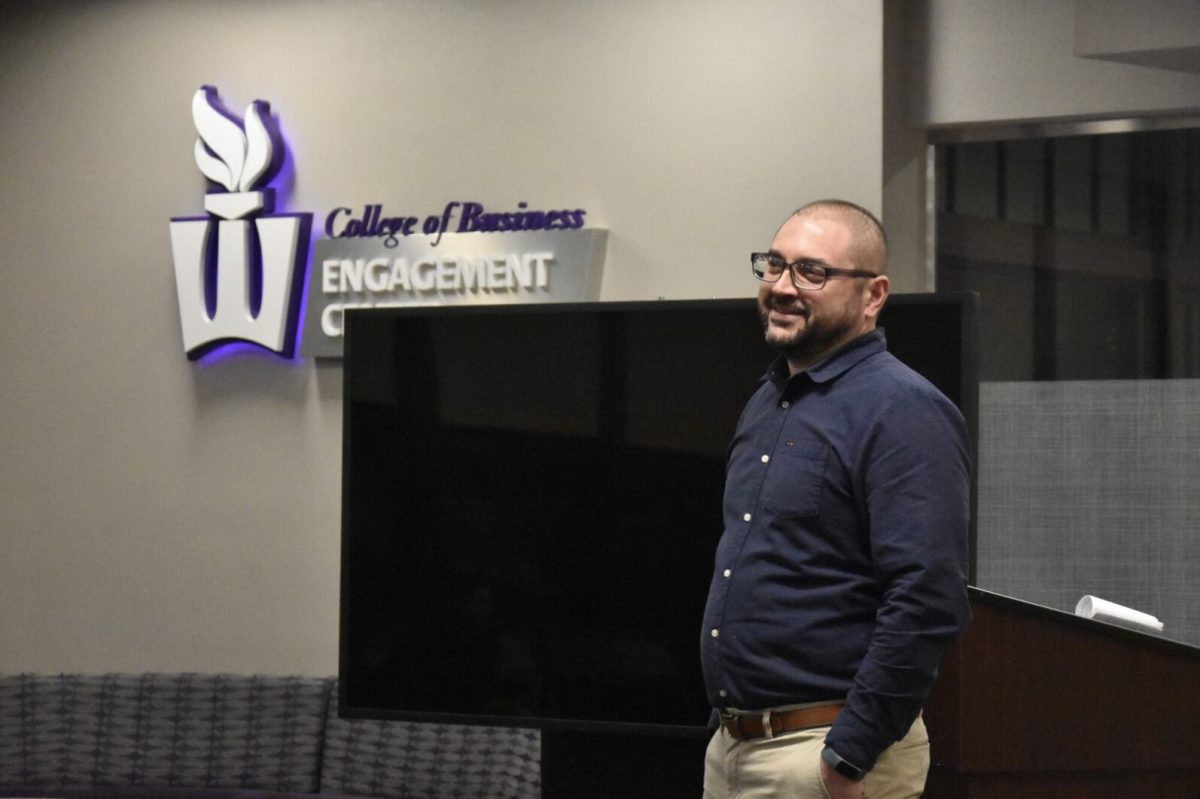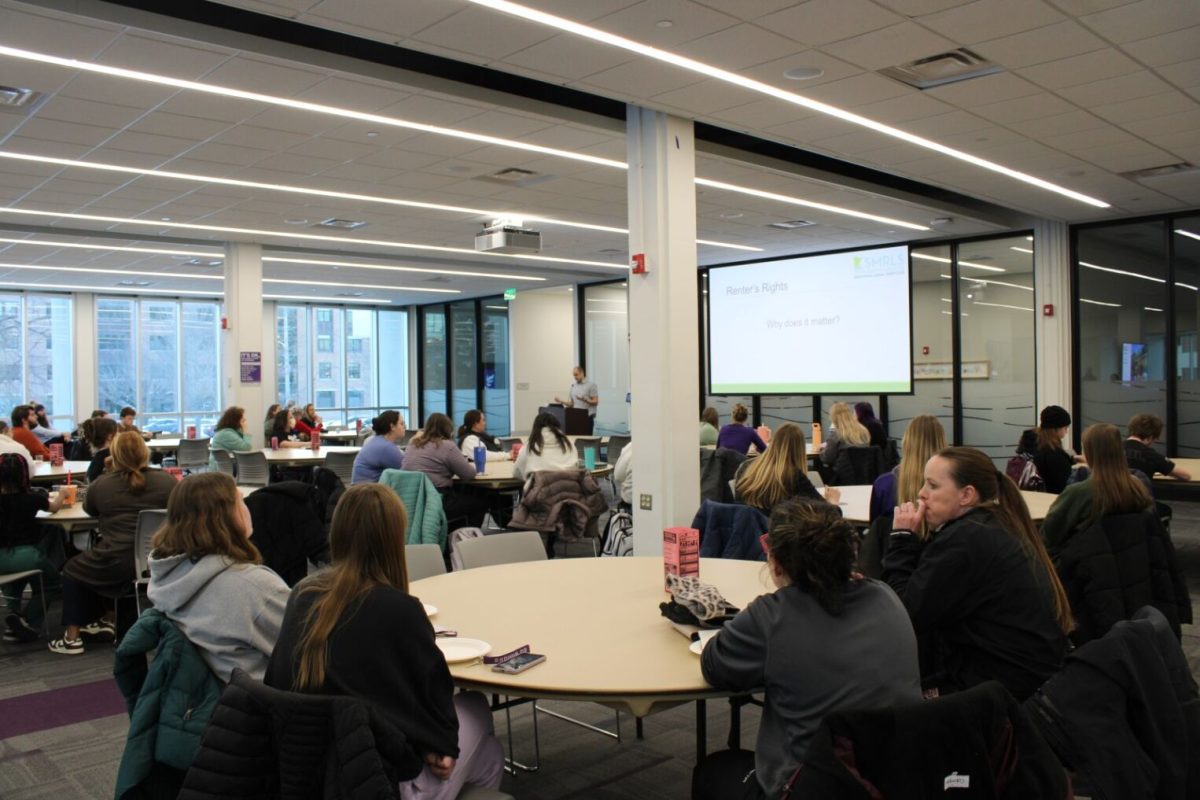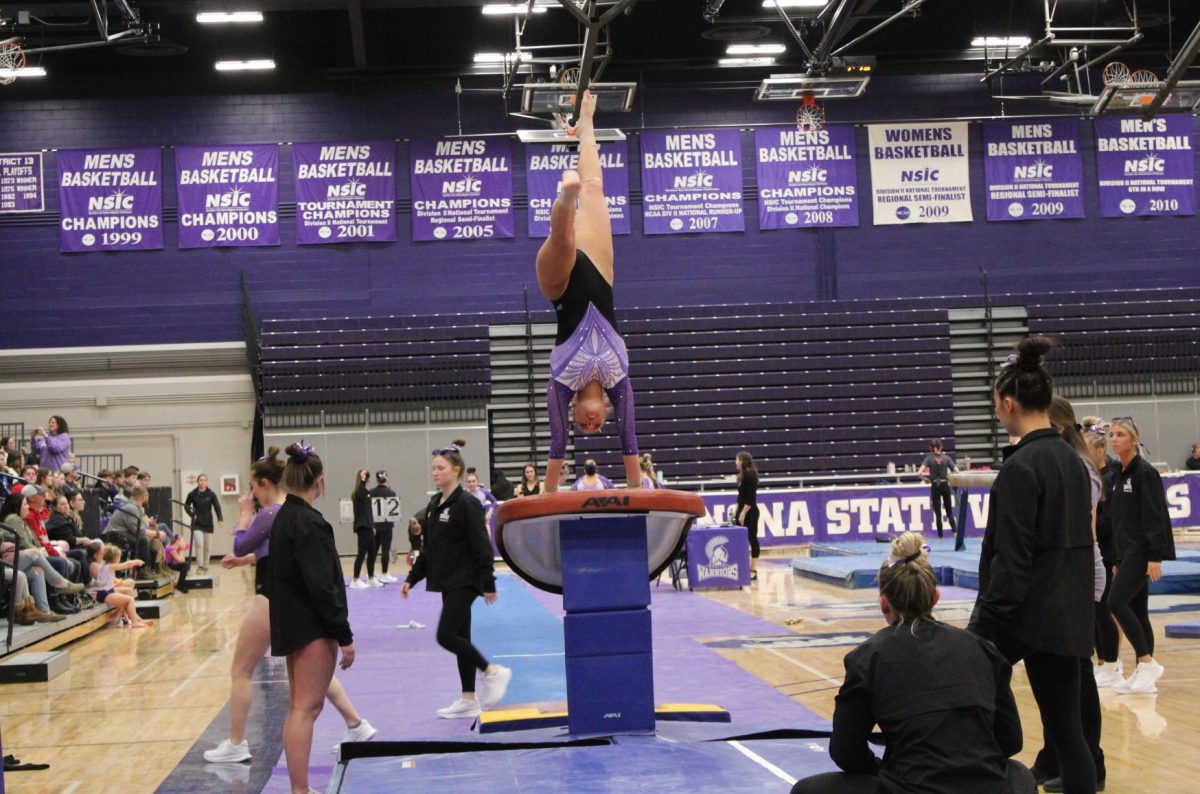Jordan Gerard/Winonan
Winona State University was graced with the presence of poet and author Paisley Rekdal on Oct. 7, as part of their Great River Reading Series.
Rekdal visited English professor James Armstrong’s poetry writing class before the reading. She took time to answer students’ questions about anything and everything regarding poetry and prose.
“I have two processes for writing: either fast and easy, or slow and revising,” Rekdal said. “The trick is figuring out what the hook is.”
The biggest poem she has written is titled, “The Invention of the Kaleidoscope,” which she wrote in her late 20s and eventually became the name for one of her books.
“Everything changes in a kaleidoscope. The shapes and colors change constantly,” Rekdal said.
She said the collection of poems eventually became an entire book resembling a kaleidoscope in which “each shard changes.”
Rekdal also said the book was purposely organized to start with a poem about acknowledgement of failure, moving to poems about progression and ending with a poem about taking root to survive.
The class asked about her extensive vocabulary in her poems and how she knew those words.
“It was a monetary reason,” Rekdal said. “In fourth or fifth grade, my dad told me to circle every word I didn’t know in Times Mazagine.”
She said her dad was appalled at the circles and made a deal with her. For every word she did not know (and would later learn), her dad gave her 10 cents. For every word she found which her dad did not know, he gave her 25 cents.
“I started keeping vocabulary lists in journals,” Rekdal said. “There are still words that never stick.”
She added her word choice also depended on the rhythm of the line.
Later at the reading, Rekdal showed her “Intimate” project, which is called a PechaKucha. PechaKuchas are a form of presentation in which slides are shown for a set number of seconds. Rekdal chose to show 30 slides with 30 seconds on each slide, totaling about seven minutes.
Her slideshow featured Edward Curtis, who photographed North American Indians in 1906 and compiled his photographs into a book, “North American Indian.”
She also concentrated on Alexander Upshaw, who was Curtis’s “guide” when he was compiling the book. To make her point, she also added a photo of her own family; a Chinese-American mother and Norwegian-American father.
“How much of yourself is non-American?” she asked.
She also read excerpts from “Animal Eye” and sonnets she had written to Mae West, a famous 1920s movie star. She also signed students’ copies of her books.
Rekdal has a graduate degree in medieval studies, which contributes to her poetry, such as the poem, “Armor” in “The Invention of the Kaleidoscope.” She currently teaches at the University of Utah.










































